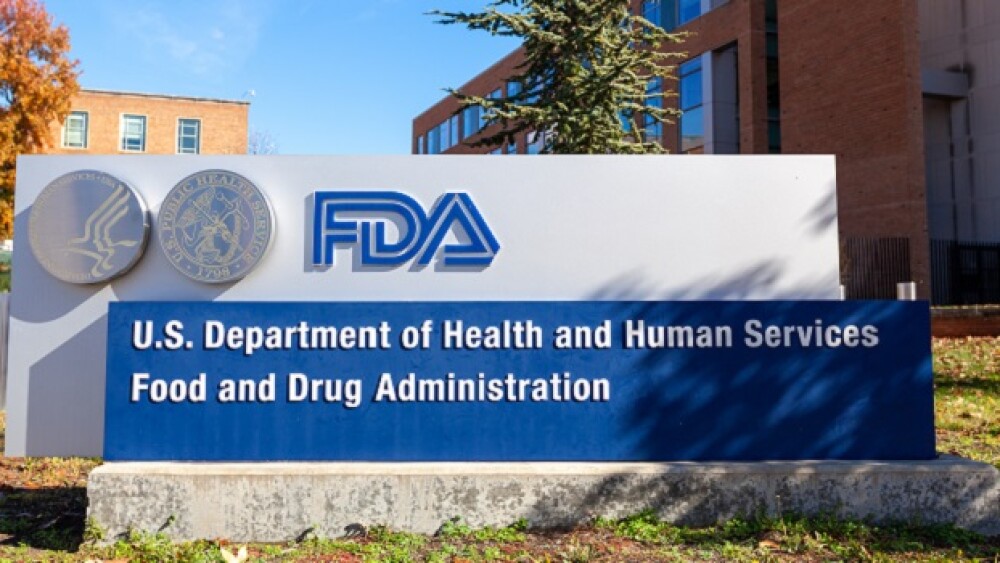With the FDA’s approval on Monday, Ayvakit is the first and only treatment for adults with indolent systemic mastocytosis, a rare hematologic disorder, according to Blueprint Medicines.
Pictured: FDA sign in front of building/Grandbrothers/Adobe Stock
Monday, Blueprint Medicines Corporation secured the FDA’s approval for its precision therapy Ayvakit (avapritinib) for the treatment of adult patients with the rare hematologic disorder indolent systemic mastocytosis.
Ayvakit’s indolent systemic mastocytosis (ISM) indication does not cover patients who have platelet counts less than 50 × 109/L. The treatment’s label warns prescribers and patients against increased risks of intracranial hemorrhage, embryo-fetal toxicity, photosensitivity and cognitive side effects. In ISM, Ayvakit’s common adverse reactions include eye and peripheral edema, flushing and dizziness.
In an investor call Monday afternoon, Blueprint CEO Kate Haviland said that Ayvakit is the “first and only medicine approved to treat” ISM, the most common form of systemic mastocytosis, and is “specifically designed to stop ISM at its source.”
“With this approval, Ayvakit is set to become the durable market leader across the spectrum of both advanced and indolent SM for years to come,” Haviland said, adding that Blueprint estimates a minimum $1.5-billion-dollar peak revenue opportunity globally, which is further strengthened by Ayvakit’s potential for growth due to its broad indication.
Aside from ISM, Ayvakit is also approved for advanced systemic mastocytosis (SM), which it received in June 2021, and gastrointestinal stromal tumor bearing a specific mutation, which it won in January 2020.
SM is a rare genetic disease that involves the uncontrollable proliferation of mast cells, a type of white blood cell. The most common form of SM is indolent—or non-advanced—disease, which is characterized by chronic, sometimes severe and often unpredictable symptoms including fatigue, bone pain and diarrhea.
In turn, SM patients are constantly “fearful of the uncertainty of what will trigger their disease and fearful that the chronic pain and devastating symptoms they experience will require them to seek emergency care,” Haviland said during Monday’s call.
In about 95% of cases, SM arises from the D816V mutation in the KIT gene. Ayvakit addresses the disease’s underlying pathology by deactivating the faulty protein, disrupting its downstream signaling pathway, and suppressing the proliferation of the mutant mast cells.
Data from the PIONEER trial formed the foundation for Monday’s FDA approval. The double-blinded and placebo-controlled study found that at a 25-mg dose, Ayvakit significantly reduced symptom burden in treated patients when combined with supportive care, which in turn led to better quality of life.
With more than 250 patients enrolled, PIONEER is the largest study ever conducted for SM.
Tristan Manalac is an independent science writer based in metro Manila, Philippines. He can be reached at tristan@tristanmanalac.com or tristan.manalac@biospace.com.






